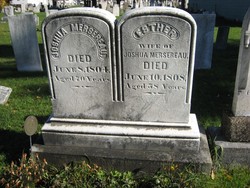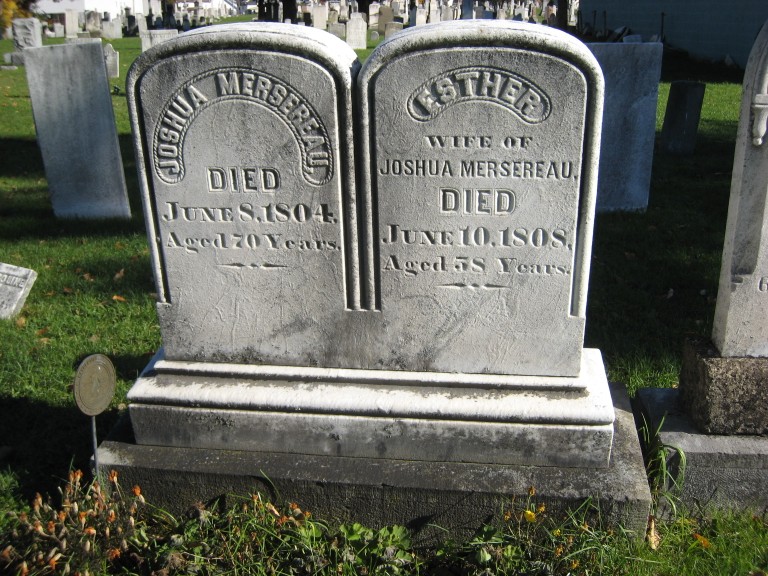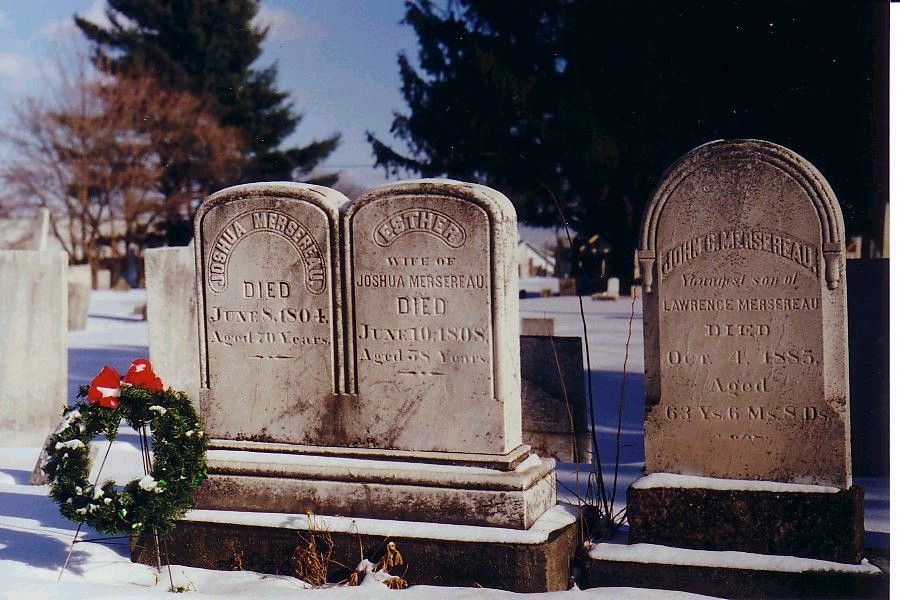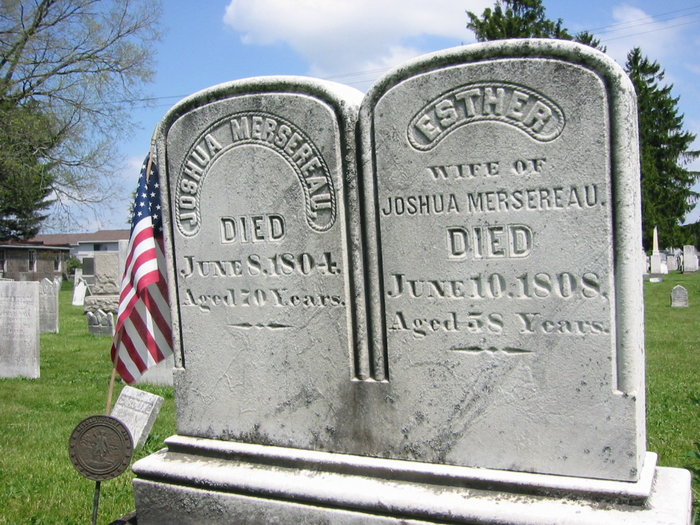One of these letters speaks of the British threatening to hang him on Staten Island, also his brother Cornelius, when he went to arrange an exchange of prisoners. In another letter he sends his regards to General and Mrs. Boudinot, and through them to His Excellency General Washington; also sends confidential communication to Hancock and Adams; speaks of General Howe; of General Burgoyne's surrender, etc., etc. His name appears on Staten Island records of transfers of land from 1762 to 1789; and then, as other soldiers, he secured grants of land in the western part of the State, as mentioned in New York State Records. After the war he removed with his family to Tioga County, where he was one of the earliest Judges. [For further particulars of his life, also correspondence, the reader is referred to the Magazine of Daughters of the Revolution, whose editor is a lineal descendant].
He married, first, Sophie La Grange, of French Huguenot ancestry, and had: Joshua, (3), son of Joshua (2) Mersereau, was born on Staten Island, New York, September 26, 1738, and died in Union, New York, June 10, 1804.
He was educated at Kings College (now Columbia), and practiced law in New York City. He and his brother John ran the first line of stage coaches between New York and Philadelphia. John introduced the first post-coach into the country from England. When the revolution broke out, the stages belonging to the brothers were stopped and the horses turned over to the American service for the army. Joshua assisted in raising a company for the Quebec expedition in the autumn of 1775. An edict issued from the British headquarters proclaimed John Mersereau a "Rebel," and set a price of five hundred guineas on his head, dead or alive.
He was a member of the provincial assembly of New York state which met at Kinston and Poughkeepsie during 1777-86, representing Richmond county. He was also deputy commissary of prisoners, General Boudinot being his superior officer, with headquarters at Rutland, Massachusetts, and afterward at Elizabethtown, New Jersey. His service was continuous in various capacities throughout the war. His name appears in the Staten Island records of transfers of land from 1762 to 178?, and then with other soldiers he received a grant of land for his service in the western part of the state. After the war he removed with his family to Tioga county, New York, where he was one of the earliest judges.
He married (1st) Sophia La Grange, of French Huguenot ancestry; (2nd) Ann Roome, of New York City, of Dutch descent; (3rd) Esther, widow of Richard Christopher. Children by first wife: Joshua, born 1758; John, 1760; Sophie. By second wife: Captain Lawrence, January 4, 1773, died January 24, 1873, married Hannah Christopher; Mary, May 23, 1775, died 1 May 1855, married William Van Name and next married George Harper; Cornelius, born July 12, 1777.
One of these letters speaks of the British threatening to hang him on Staten Island, also his brother Cornelius, when he went to arrange an exchange of prisoners. In another letter he sends his regards to General and Mrs. Boudinot, and through them to His Excellency General Washington; also sends confidential communication to Hancock and Adams; speaks of General Howe; of General Burgoyne's surrender, etc., etc. His name appears on Staten Island records of transfers of land from 1762 to 1789; and then, as other soldiers, he secured grants of land in the western part of the State, as mentioned in New York State Records. After the war he removed with his family to Tioga County, where he was one of the earliest Judges. [For further particulars of his life, also correspondence, the reader is referred to the Magazine of Daughters of the Revolution, whose editor is a lineal descendant].
He married, first, Sophie La Grange, of French Huguenot ancestry, and had: Joshua, (3), son of Joshua (2) Mersereau, was born on Staten Island, New York, September 26, 1738, and died in Union, New York, June 10, 1804.
He was educated at Kings College (now Columbia), and practiced law in New York City. He and his brother John ran the first line of stage coaches between New York and Philadelphia. John introduced the first post-coach into the country from England. When the revolution broke out, the stages belonging to the brothers were stopped and the horses turned over to the American service for the army. Joshua assisted in raising a company for the Quebec expedition in the autumn of 1775. An edict issued from the British headquarters proclaimed John Mersereau a "Rebel," and set a price of five hundred guineas on his head, dead or alive.
He was a member of the provincial assembly of New York state which met at Kinston and Poughkeepsie during 1777-86, representing Richmond county. He was also deputy commissary of prisoners, General Boudinot being his superior officer, with headquarters at Rutland, Massachusetts, and afterward at Elizabethtown, New Jersey. His service was continuous in various capacities throughout the war. His name appears in the Staten Island records of transfers of land from 1762 to 178?, and then with other soldiers he received a grant of land for his service in the western part of the state. After the war he removed with his family to Tioga county, New York, where he was one of the earliest judges.
He married (1st) Sophia La Grange, of French Huguenot ancestry; (2nd) Ann Roome, of New York City, of Dutch descent; (3rd) Esther, widow of Richard Christopher. Children by first wife: Joshua, born 1758; John, 1760; Sophie. By second wife: Captain Lawrence, January 4, 1773, died January 24, 1873, married Hannah Christopher; Mary, May 23, 1775, died 1 May 1855, married William Van Name and next married George Harper; Cornelius, born July 12, 1777.
Family Members
Advertisement
Advertisement












